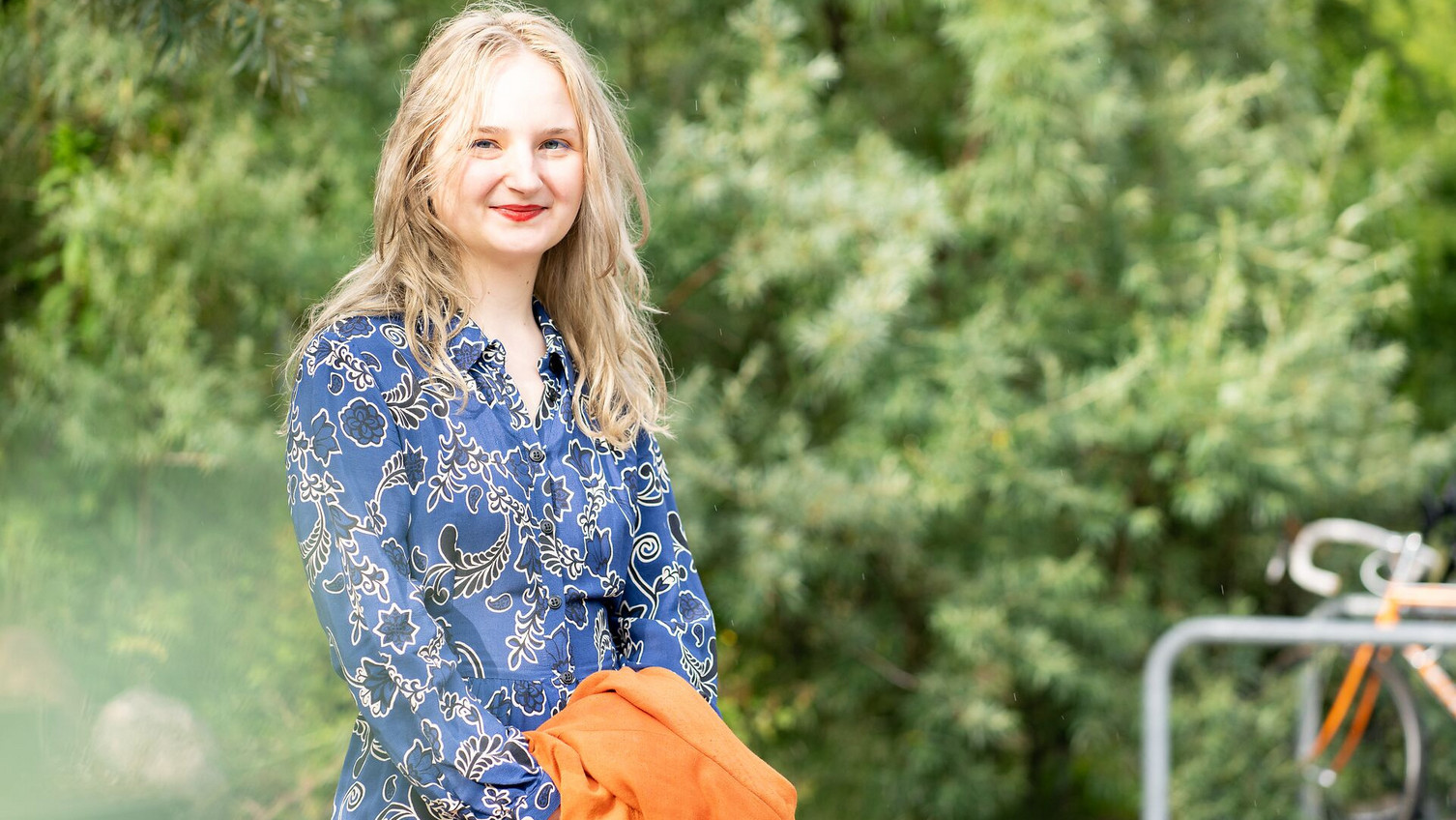Doctoral Track: Cara-Julie Kather - Courage to do a doctorate!
2024-07-03 Cara-Julie Kather came to Leuphana after completing her Bachelor's degree at the University of Halle to complete the Master's programme "Cultural Studies: Critique of the Present - Arts, Theory, History". She took advantage of the Doctoral Track, which enables students with an affinity for research to begin their doctorate during their Master's programme. Funded by a scholarship for gifted students, Cara-Julie Kather is researching feminist-decolonial perspectives on mathematics in the "Philosophy, Literature and History" doctoral programme at the Faculty of Cultural Studies. In this interview, she talks about her experiences on the doctoral track.
- You came to Leuphana after completing your Bachelor's degree and immediately decided to apply for the Doctoral Track - why?
I was totally convinced by the idea of combining a Master's programme and a doctorate. On the one hand, this makes the transition from Master's to doctorate much easier and smoother. On the other hand, you have more time overall for the doctorate, a secure and clear perspective for what follows the degree. This also has a financial aspect: there is often a period of time between the Master's programme and the doctorate during which an exposé has to be written and a supervisor has to be found. This can all take several months and it is often difficult to find funding at this point. In the Doc Track, these things already happen during the Master's programme, so that financing is easier during the transition. I also wanted to focus the content of my Master's degree programme on the doctorate and find my own way into the project and also into working with the supervisor. This also means security, as you get your "foot in the door" earlier and can familiarise yourself with the doctoral cosmos while still studying.
- Since the second semester, you have also been enrolled as a doctoral student in Lüneburg alongside your Master's programme. What are the advantages of this?
Once you are enrolled, you are officially a doctoral candidate and can therefore also access all offers and funding for doctoral candidates and apply for travel grants, for example. This gave me the opportunity to take part in a conference on the relationship between knowledge and power in my second semester in Lüneburg. Here I received important impulses for my project and got to know exciting researchers, with whom I am also publishing a book on this topic this year. It is also possible to have the courses from the doctoral programme credited as complementary studies in the Master's programme. This means that the PhD and Master's programmes are interlinked and you have already completed the courses from the PhD programme in the Master's programme. Finally, the preliminary work on the exposé helped me to acquire funding - without a gap after the Master's programme.
- What is the relationship between the topics of your Master's thesis and your doctoral thesis?
I am working on a feminist and decolonial perspective on mathematics. I am fascinated by the fact that mathematics is usually understood as "neutral knowledge" and yet there is an astonishing amount of politics hidden in this understanding and also in mathematics. In my work, I am therefore often allowed to break with my own ideas and those of others, to question and explore them. That really moves me. My Master's thesis deals with Ludwig Wittgenstein's understanding of mathematics from a feminist perspective. In principle, this is a kind of digression from my doctorate: The topic is not the subject of the dissertation, but it is related in terms of content. So I have gained very useful and helpful background knowledge.
- Who would you advise to apply for the doctoral track?
Anyone with a keen interest in research. Of course, it helps a lot if you already have a subject area that you are passionate about, because a doctorate requires staying power. The Doc Track is also recommended for anyone who wants to gain planning security for their own research at an early stage - including financially. The first steps consist of a discussion with the doctoral counselling service and then with potential supervisors. This allows you to find out whether the doc track makes sense for you personally. I would recommend taking these two steps to anyone who is fundamentally curious about the programme. In any case, I recommend not being put off. I was also nervous at first, but today I am very glad to have developed the courage: For me, doing a doctorate on the Doctoral Track was and is a great experience.
With the Doctoral Track programme, the Leuphana Graduate School is pursuing a unique path of academic qualification in the breadth of the participating disciplines. Bachelor's and Master's students with a particular affinity for research enter the scientific community of our doctoral programmes at an early stage via the Doctoral Track programme and thus have the unique opportunity to dovetail their Master's and doctoral studies and, with the doctorate in sight, acquire the Master's degree en-route.

